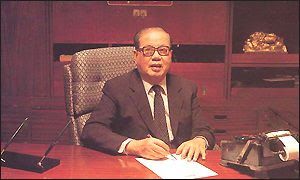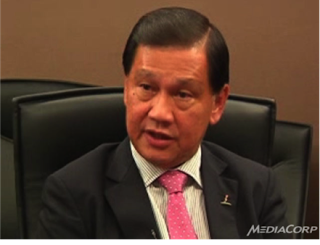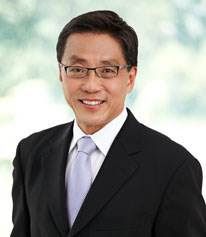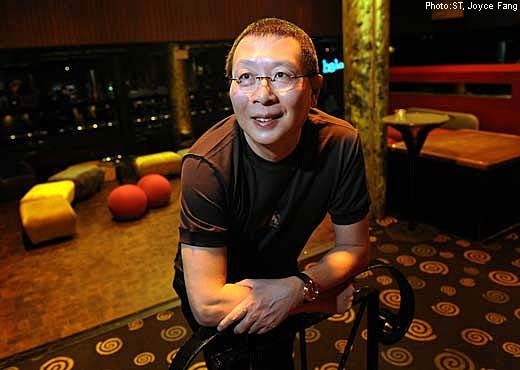Ho Kwon Ping - Banyan Tree (Wednesday 3 July 2013 / 23:57)
History of the organisation
Banyan Tree Hotels and Resorts, a top tier brand which is associated with private villas, hotels, tropical spas, and a retail gallery which promotes traditional craft. The first boutique resort started its operation in 1994 at Phuket, Thailand. Banyan Tree Hotels and Resorts (commonly known as ‘Banyan Tree’) had its headquartered in Singapore and is a subsidiary of Banyan Tree Holdings Limited. The organisation consist of two brands that gains high reputations, ‘Banyan Tree’ and ‘Angsana’. The ‘Banyan Tree’ target at wealthy travellers looking for classic experiences in romance, intimacy and rejuvenation on the other hand, the ‘Angsanas’ launched in 2000, is designed for more contemporary experiences and at an affordable price. Banyan Tree has more than 30 hotels and resorts, 65 spas and 80 retail galleries, as well as three golf courses.
Since its establishment in 1994, Banyan Tree had won some 400 international tourism, hospitality, design, and marketing awards, some of which included “Best Resort Hotel in Asia Pacific” (Phuket) for four consecutive years from Business Traveller Awards since 2002, “Seychelles’ Best Resort” and “Seychelles’ Best Spa” from World Travel Awards (2003), “Best Hotels for Rooms” (Bangkok) from UK Conde Nast Traveller (2006), “Best Hotel (Luxury)” (Lijiang) from Hospitality Design Awards (2007), and “PATA Gold Award—Ecotourism Project Category” (Bintan) from Pacific Asia Travel Association Gold Awards (2008).
Brief information of the leader
Ho Kwon Ping is the founder of Banyan Tree, a worldwide chain of Asian luxury resorts. Ho is one of Singapore's most prominent businessmen. He is the Chairman of Wah Chang International Corporation, which consists of public listed and private companies involving hotel and property development, agriculture business and food products in the Asia-Pacific region. He is also the Executive Chairman of Banyan Tree Holdings, which owns both listed and private companies engaged in the development, ownership and operation of hotels, resorts, spas, retail galleries and other lifestyle activities around the world. In addition, Ho is also the Executive Chairman of Singapore Management University (SMU) as he has introduced a third local university in Singapore named SMU that has an impact on Singapore’s education system.
Early life
Ho was born in Hong Kong at 1952 but spent his childhood years in Thailand because his father, Ho Rih Hwa, was a businessman and diplomat in Thailand. Ho's was educated at Tunghai University, Taiwan, and Stanford University, California. However, he had been expelled from Stanford due to protesting against the Vietnam war. Thereafter, he came back to Singapore to serve his national service(NS) as a combat engineer. After he had completed his NS, he enrolled at the University of Singapore. In 1977, while working as a journalist for the Far Eastern Economic Review, he was detained under the Internal Security Act for writing pro-Communist articles in the Far Eastern Economic Review and spend two months in Singapore prison. After his release, he continued his studies at University of Singapore and graduated in Economics and History in 1978.
Ho joined his father's business, Wah Chang Group in 1981 after his father suffered a stroke. He felt that as the eldest son, it is his responsibility to take over the family business. At the same time, he had missed a job opportunity at Insead, the business school in Fontainbleau, France. When he first joined the company, he made a bad business decision in his first project which nearly got the company into bankruptcy. Then Ho decided to quit but was urged by his father to stay on and recover the losses. Meanwhile in 1984, Ho sold his family’s trading and manufacturing company and was deeply inspire by the village life to reinvent the idea of luxury resort.
Since then, he has demonstrated great talent and now becoming a successful businessman. Now, Ho is also actively involved in civil society, currently holding chairmanship, directorship positions and membership on the boards of various international and Singapore organisations.
Achievements
In May 2000, Ho was awarded an honorary doctorate by Johnson & Wales University, and later received the London Business School 2005 Entrepreneurship Award. In 2008, he was named CEO of the Year at the Singapore Corporate Awards. He also received the Hospitality Lifetime Achievement Award in 2009 at the China Hotel Investment Summit in Shanghai. As Chairman of Singapore Management University (SMU), Ho was the recipient for the Singapore Government’s Meritorious Service Medal for his contribution in the founding of SMU. In 2010, he became the first Asian to receive the ACA (American Creativity Association) Lifetime Achievement Award in recognition of his creativity and innovation. Furthermore in 2011, he was voted as the top Thinker in Singapore in the Yahoo Singapore 9 Awards as well as South East Asia Property Awards. As for the year 2012, Ho received a CNBC's Travel Business Leader Award Asia Pacific, in addition to being named to the board of Diageo, the world’s leading alcoholic beverages business.
Nowadays, there are many kinds of leadership styles being applied to the hospitality industry; however it is clearly known that there isn’t any best leadership style. Different type of mainstream leadership styles have its own strength and limitations which may only be suitable for certain situations or business approaches and decisions. Therefore, most effective leaders will try their best to make adjustment to their leadership abilities and styles depending on certain situations.
For Ho’s leadership style, it is easily identified as being a democratic and people-oriented leader.
Democratic
A democratic leader is also known as the participative leadership style who encourage his employees to be part of the decision making and keeps staffs informed about everything that will affect their work. Given such high level of commitment, the employees would appreciate the trust they receive and responds with cooperation, team spirit and high morale. Ho would also recognize and encourages achievements and in return it causes the employee to constantly produce high quality work. Ho, being the democratic leader, put great emphasis on building commitment and generating new ideas. He welcome comments/ feedback and would invite his employees to develop new directions for themselves and the company. Hence, he will attend to all the meetings to listen to his employees’ views. He encouraged his employees to share ideas along with creativity and also accept employees honest feedback and suggestions to maintain the interaction with them. Ho believed that in order to build a sustainable and competitive business he make sure that every employees that come to work daily must feel a sense of belonging and are proud of their working place. Furthermore, he will fulfil all the demands of all stakeholders such as employees, partners, management, customers and even the government that is related to the organisation.
People-oriented
Ho is also a people oriented leader as he care and treat his employees equally. He valued his employees and believe that they are great assets to the organization. An example given was that no employees was being retrenched during the Asian economic crisis in 1997, the September 11 attacks on the World Trade Centre in 2001, the dot.com crisis in 2001, severe acute respiratory syndrome (SARS) in 2003, and the Indian Ocean tsunami on December 26, 2004 even if it had badly affected the travel and hospitality industry.
Since employees are the competitive edge to the organization, he develop empathy and pay attention to their needs. Ho will reward employees that are involved, committed to projects and contribute to the organisation. Additionally, he built a childcare centre and school for the employee’s children. This engagement with his employees will allow to give them enough freedom for their work. Which resulted in enhanced business growth that has been proven in his success on the industry.
How did his leadership styles applied to the hospitality industry?
Banyan Tree has seen to be improving continuously. Since Ho believes in developing and nuturing the employees, it is essential to train future Banyan Tree leaders. It will in return help to sustain the organization effectiveness and meet the growing demands. Therefore, Banyan Tree Management Academy (BTMA) was launched in 2008 and is located in Phuket, Thailand. In order to differentiate themselves from other similar training programs, they used another approach to teach the employees on how to become better leaders. One of training techniques, for example, is to get their employees to understand themselves first before learning how to become a better leader.
Since its founding, Banyan Tree had started to reflect to the natural environment. For instance, they will be using local products and indigenous materials whenever possible. It places a strong statement on keeping up its mission and its corporate social responsibility (CSR) commitment into all levels of its operations. Banyan Tree’s Corporate Social Responsibility effort does not only stop there, in 2001, the company started its Green Imperative Fund, which provides funding to assist environmental initiatives and community-based projects. Examples of such initiatives include the monitoring of sea turtles and beach erosion in the Seychelles and its two resort-based marine labs in the Maldives that has a major impact on the hospitality industry.
In 2007, the company launched a new initiative called Greening Communities, specifically to address climate change that is happening around the world but aiming to reduce and offset their carbon emissions at their own ends. Each Banyan Tree resort is charged over the next ten years with planting annually 2,000 non-invasive trees that are complimentary to the local environment, in an effort to reduce its carbon footprint and support local community enhancement. BTH has developed a comprehensive monitoring system for each individual property, establishing benchmarks for energy and water use, waste management, sourcing supplies, staff training, social welfare, and implementation of their company-wide Green Imperative Fund activities.
References
http://www.banyantree.com/downloads/pdf/presskit/banyan_tree_sr_2009.pdf
http://www.lagunaphuket.com/media-hub/downloads/Ho-Kwon-Ping.pdf
http://www.haygroup.com/sg/press/details.aspx?ID=21021
http://www.citynews.sg/2009/09/ho-kwon-ping-plan-global-define-values/
http://smu.edu.sg/perspectives/2012/06/26/can-leadership-development-be-taught-not-really-says-banyan-tree-chairman-ho#.UdFy_FNJbjD
http://smu.edu.sg/smu/about/smu-leadership/board-trustees/ho-kwon-ping
http://www.tourismfortomorrow.com/bin/pdf/original_pdf_file/banyan_tree_holdings.pdf
http://www.bbc.co.uk/news/11910973
http://www.banyantree.com/corporate_information/information
Labels: Banyan Tree, Ho Kwon Ping









